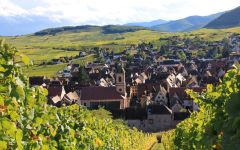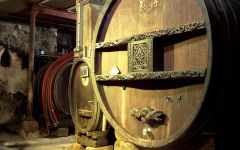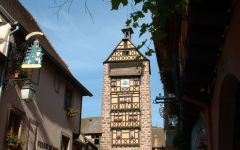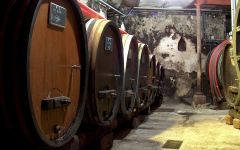Hugel Gentil 2023
-
James
Suckling



Product Details
Your Rating
Somm Note
Winemaker Notes
As a state of mind, the perfect Gentil should be aromatic, aperitive, yet dry and gastronomic. On the nose, the fruit of the aromatic grapes composing it presents itself first, unmistakably Alsace, it opens on yellow plums, rose, quince, citrus zests. Generous, it quickly invites you to a first sip. In mouth, harmony prevails. Supple, the palate unfolds, pleasant, graceful, leading to a delicate, fresh finish.
Blend: 30% Gewürztraminer, 24% Pinot Gris, 19% Riesling, 18% Sylvaner, 6% Pinot Blanc, 3% Muscat Blanc à Petits Grains
Professional Ratings
-
James Suckling
This has quite an aromatic complexity, with spicy, floral and nutty notes. Charming and medium-bodied with a very satisfying balance of juiciness and citrusy freshness that lights up the long finish. A cuvee of 30% gewurztraminer, 23.5% pinot gris, 18.7% riesling, 18% sylvaner, 6% pinot blanc and 3.8% muscat.
Other Vintages
2022-
Robert
Parker -
James
Suckling
-
James
Suckling
-
James
Suckling
-
James
Suckling
-
James
Suckling
-
James
Suckling
-
Tasting
Panel
-
James
Suckling
-
Wine &
Spirits
-
Wine
Spectator -
Wine &
Spirits
-
Robert
Parker
-
Robert
Parker








In the cellars, the oldest of which dates back to 1551, can be seen rows of oak wine casks, over one hundred years old, crafted by the forefathers of the present generation of Hugels now running the company. Near them is the oldest cask in the world still in use: the Sainte Caterine, which has a capacity of 8,800 litres. It was built in 1715, the year in which Louis XIV died.
The company has always maintained its family character and is determined to keep it that way. The vineyards are owned and farmed by individual members of the family whereas the company owns the buildings and machinery.

With hundreds of white grape varieties to choose from, winemakers have the freedom to create a virtually endless assortment of blended white wines. In many European regions, strict laws are in place determining the set of varieties that may be used in white wine blends, but in the New World, experimentation is permitted and encouraged. Blending can be utilized to enhance balance or create complexity, lending different layers of flavors and aromas. For example, a variety that creates a soft and full-bodied white wine blend, like Chardonnay, would do well combined with one that is more fragrant and naturally high in acidity. Sometimes small amounts of a particular variety are added to boost color or aromatics. Blending can take place before or after fermentation, with the latter, more popular option giving more control to the winemaker over the final qualities of the wine.

Small but mighty, this picturesque region in northeastern France is renowned for its white wines produced by passionate families whose winemaking roots span generations and even centuries. Nestled between the Vosges Mountains and the Rhine River, Alsace benefits from a sunny, dry climate and a long growing season. It is one of the most geologically diverse regions in the world — one of the many reasons why Alsace rocks!
Alsace wines include dry, mineral-driven Riesling, earthy Pinot Gris, refreshing Pinot Blanc, exuberant Gewurztraminer, elegant Pinot Noir, and more. From traditional-method sparkling wines to easy-drinking AOC Alsace, to complex Grand Cru bottlings from 51 distinct sites, and rich, late harvest wines, Alsace produces a wine for every occasion. Most Alsace wines are single-varietal bottlings and are labeled with the grape name. The region is also one of the greenest wine-producing areas in France, with 36% of its vineyard area certified organic.
Riesling, the region’s calling card, is dry, fresh and floral in its youth, developing complex mineral and flint character with age. Gewurztraminer is known for its signature spice and lychee aromatics. Pinot Gris is prized for its combination of crisp acidity and savory spice as well as ripe stone fruit flavors. Pinot Blanc is an affable food partner or porch sipper. Pinot Noir, the only red grape in AOC Alsace, is now authorized in three Grand Cru areas and is also used for Crémant d’Alsace sparkling rosé. Any bottle you choose will offer deliciousness, pleasure and value that is unprecedented in other wine regions.
